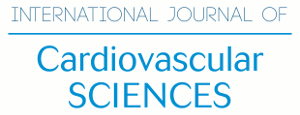Abstract
Background
Coronary flow and myocardial contractile performance assessed by strain magnitude increase during a dobutamine stress echocardiogram (DSE). Normal coronary flow reserve (CFR) can be attained upon completion of a DSE at age-predicted maximum heart rate (HR) (HRmax = 220 - age)] or submaximal HR [(0.85) HRmax] or before completion (early CFR).
Objective
To ascertain the association between delta strain and HR in patients with early normal CFR.
Methods
This prospective study included patients whose normal CFR was obtained before the DSE was completed. Percentage of resting HR (%HRrest) = [(HRrest ÷ HRmax) 100]% and %HR CFR = [(HR at the time of CFR attainment) ÷ (HRmax) 100]% were recorded. Strain was assessed in the left ventricular region of interest, and delta strain was calculated as the difference between the measures obtained at HRrest and after the DSE was completed. Strain agreement analysis for HRrest, %HRrest, and %HR CFR was performed using the kappa coefficient. The Shapiro-Wilk test was used to assess data normality, and the Mann-Whitney test was used to compare the groups. A p-value < 0.05 was considered statistically significant.
Results
Strain measured -23.3% ± 4.3% at baseline and -31.1% ± 4.9% during the DSE. In delta strain > 8 absolute points, the ROC curves showed an area under the curve of 0.874 ± 0.07 for %HRrest (p = 0.001) and an area under the curve of 0.862 ± 0.07 for %HR CFR (p = 0.001). In delta strain > 8 points, %HRrest ≤ 42.6% of HRmax and %HR CFR ≤ 62.5% of HRmax showed an accuracy of 82.9% and 79.8%, respectively.
Conclusion
In this study, lower HRrest and HR at the time of CFR attainment had a good association with better myocardial contractile performance, according to the change in strain magnitude.
Blood Flow; Blood Flow Velocity; Myocardial Contraction Strain; Echocardiography, Stress/methods; Vasodilatador Agents; Cardiotonic Agents; Coronary Artery Disease; Diagnostic, Imaging/methods

 Thumbnail
Thumbnail
 Thumbnail
Thumbnail
 Thumbnail
Thumbnail


